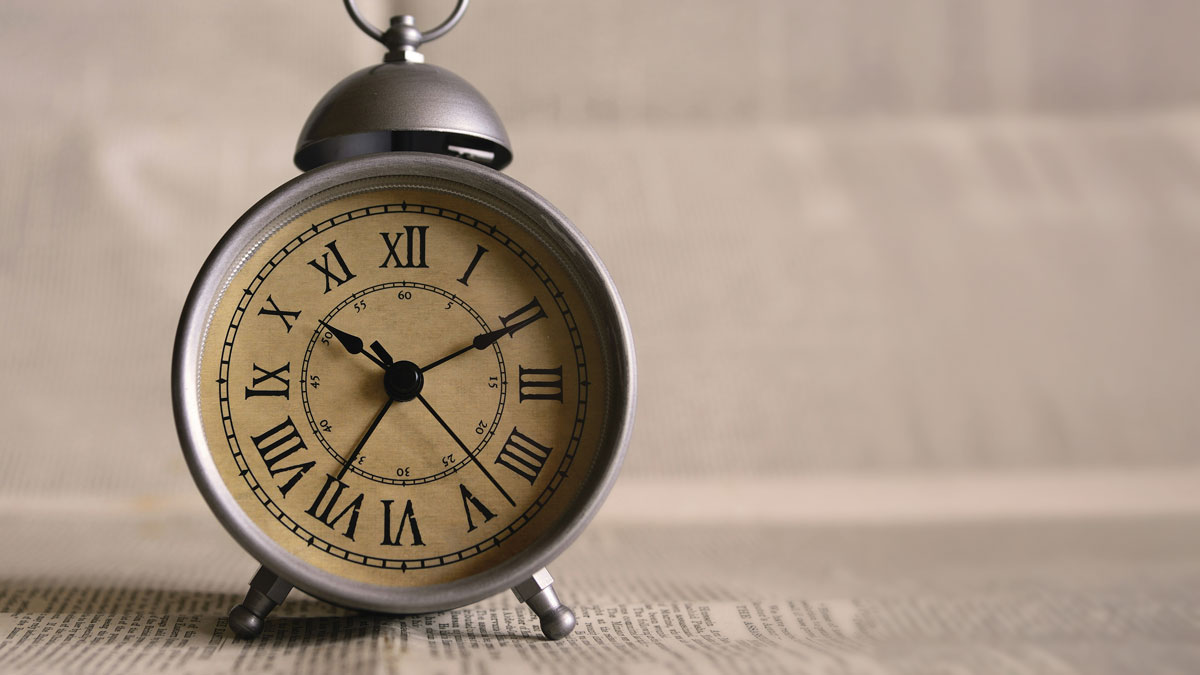I’m standing at the kitchen bench with the cooktop to my right and the toaster to my left, waiting for the crumpets to turn just the right shade of brown.
Directly in front of me is a large-face clock that sits on the back of a tissue box. In a way this clock is disturbing, for it has a large second hand that makes a sweeping sound as it measures off the time, second by second, seemingly interminably. I am entranced. My focus is on the end of the second hand as it clicks from one second mark to the next, as it tries to get to the starting point, of which there is none in the circle of the clock face.
I’m suddenly startled from my reverie as the toaster pops up my crumpets. I return to the other bench to apply slabs of butter and other spreads and so begins my day.
Annoyingly, I cannot forget the clock with the second hand slowly sweeping around in glorious continuity, obedient to the power of the battery hidden behind its face. It will continue to mark off the seconds, the hours, the days, the weeks, the months until one day the battery peters out and the second hand sweeps no more.
When I return to the kitchen later that day, I notice the silence. Ah! The clock! It is not ticking!
I am motivated to come to its aid and replace the battery giving it new life again. Obviously, a silent, motionless clock is useless. We naturally want it working so we can order our lives by the indication of its hands.
Not all societies have timepieces of some sort, but most do. There is more to a clock than merely telling the time, for once the hour hand moves around 12 hours, then it does the same thing again and a day has passesd. It is only interested in one day. One day at a time.
More importantly though, the clock measures our lives. As the days, months and years move on from one era to the next, the clock measures the life of its owner, until, one day that cannot be denied, our body clock stops. There is no replacement battery. Our clock stops and so do we, but the clock sitting on the tissue box in my kitchen will keep on ticking as long as a battery has power to drive it.
It’s a bit sad in a way that a manufactured object can outlive its maker. High quality timepieces can function on and on for hundreds of years, while hundreds of years for a human life ended in the patriarchal age.
But the wonderful thing to remember is that one day, one glorious day, timepieces of one kind or another will not be necessary. God can easily give us an innate sense of time (if we need it) so that at any moment we will know what time of day it is in the year 5000 to the power of one million.
So, while here on this earth, while earth time remains, we find clocks and watches are very convenient, to say nothing of digital watches and what these can do.
How we spend our time is critical as we devote each day to God, as He leads us in the way of His choosing. The time on the clock is very much secondary. Of primary importance is our relationship with God and that we choose to be always in His care.
William Ackland is retired in Cooranbong (NSW) and has written eight books.






